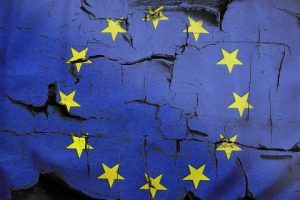Brexit will have no impact on UK membership of the European Patent Organisation, the European Patent Office announced last week. On this occasion, we will examine the European Patent in comparison to the European Unitary Patent – also for the situation after brexit.
Good News to the Brexit
 The Brexit will have no effect neither on the membership of the United Kingdom (UK) in the European Patent Organisation (EPOrg), nor on European patents validated in the UK, according to the European Patent Office (EPO) press release. The background to this statement is a meeting between important representatives of the EPO and the Chartered Institute of Patent Attorneys (CIPA), which also took place last week.
The Brexit will have no effect neither on the membership of the United Kingdom (UK) in the European Patent Organisation (EPOrg), nor on European patents validated in the UK, according to the European Patent Office (EPO) press release. The background to this statement is a meeting between important representatives of the EPO and the Chartered Institute of Patent Attorneys (CIPA), which also took place last week.
The EPO’s statement is correct and, by the way, in line with other british statements. The Intellectual Property Office, the British Patent and Trademark Office, has been publishing the same message since August 2016. The European patent and its grant by the European Patent Office are not affected by the brexit. There are two reasons for this: firstly, the European Patent Organisation is an independent international organisation, but not an EU institution. The second reason is the construction of the European patent itself, which is ultimately a bundle of national patents.
The European Patent
The European patent is granted by the EPO. Unlike its name suggests, it is neither a transnational patent nor is it limited to the EU Member States. The European Patent Convention (EPC) has 38 contracting states. This includes all 28 EU Member States and 10 other countries. These are countries close to the EU, such as Norway and Switzerland, but Iceland, Macedonia and Turkey are also among them. In addition, the European Patent Organisation has concluded agreements with some states that are not members of the EPC on the extension of the protection of European patents. At present, these are Bosnia and Herzegovina and Montenegro.
If a European patent is now filed with the EPO, the countries from the 38 contracting states and the affiliated states in which the European patent is to be validated nationally have to be mentioned. In addition to the actual granting procedure, the EPO also handles any opposition proceedings. Furthermore, the European Patent is like a bundle of national patents of the desired contracting states. The patent applicant must request the validation of his or her European patent in the respective national patent offices. In practice, this is often done by paying the corresponding fees, but in Germany, for example, the European patent is re-examined before it is validated – and sometimes not accepted nationally either.
Jurisdiction of European patents
 If, in the months following the grant procedure for the European patent, opposition proceedings are initiated, they are first heard before the EPO. In many countries – including Germany and the UK – EPO-certified patent attorneys and lawyers are entitled to represent their clients there. This also applies to European patent attorneys based in the UK after the Brexit.
If, in the months following the grant procedure for the European patent, opposition proceedings are initiated, they are first heard before the EPO. In many countries – including Germany and the UK – EPO-certified patent attorneys and lawyers are entitled to represent their clients there. This also applies to European patent attorneys based in the UK after the Brexit.
If one considers the jurisdiction of patent proceedings, the situation becomes somewhat more confusing. The situation with the current European patent is as follows: if a patent is infringed in another EU country, a British patent, for example in Poland, the British patent holder must take action against it – under Polish law and before Polish courts. This is complicated not only by national differences in the law and languages, but also by the different national professions and rules for patent attorneys. For example, a German patent attorney may have a right to counsel and a right to speak in court, but is not entitled to file an application. For this a German attorney is entitled. In the UK, on the other hand, a patent attorney is responsible for the patent application and any appeal proceedings, but the barrister has the right to file an application and speak in court, and the preparation and advice is provided by Solicitors.
This is the situation regarding European Patents for German patent attorneys, for UK patent attorneys – as well as, for example, for Turkish patent attorneys – right now and will continue to be so after brexit.
The European Unitary Patent
In order to simplify and harmonise these things, there has been an effort for some years now to create an European Unitary Patent within the EU Member States. This would eliminate the need for individual validation at the national patent offices and it would actually be an EU-wide patent. At present there is no such system and it is still uncertain whether it will be introduced before the brexit is introduced. There is only hope – we reported.
Jurisdiction of the European Unitary Patent
However, the UK can only participate in the considerably simplified, uniform and EU-wide jurisdiction that will be created with the European Unified Patent if the ratification and entry into force of the European Unified Patent and European Unified Court takes place before the actual Brexit. The territorial validity of the European Unitary Patent will only apply to those countries that joined the UPC at the time of entry into force of the European Unitary Patent. This timetable is almost impossible to be fulfilled realistically – unless negotiations between the British government and the EU Commission lead to an extension of the phase-out from the brexit. And there are concret news to this: yesterday the ministers of the EU decided their guiding principles for an extension of the phase-out. If Britain agreed, this proceeding to the final brexit could last until 31 december 2020.
Transformation of European Patents to European Unitary Patent
The current European Patent will be valid and would be transformed with long transitional periods, even if the European Unified Court became true. An European Unitary Patent may be applied for any European Patent that has been or will be granted for or from 17 December 2012 (Regulation (EC) No 1257/2012 and (EU) No 1260/2012). And, of course, after the Unified Patent Court (UPC) may have really started. Patent holders, who would like to retain their European Patents could submit so called Opt-out applications, according to the planning of the Unified Patent preparatory committee. These would prolong the validity of European Patents for up to 14 years.
Political negotiation anyway
The British Prime Minister Theras May has repeatedly remarked that the European Court of Justice (ECJ) will not be subjected to the Brexit in external jurisprudence. However, the ECJ would not be a court of jurisdiction for the future European Unified Court, but rather for the interpretation of relevant EU legal questions.
So even if the British ratification of the Unified Patent Court happens in time: the future of the UK concerning the European Unitary Patent and the UPC after the Brexit requires further negotiation results.
This starts with domestic politics in the UK: months ago, Jo Johnson, the British Secretary of State for IP, said that the European Patent Court was not an EU institution. This is true, but it is not complete: after planning, the European Patent Court should of course resolve disputes over the EU Unitary Patent, but it should also provide the case law for the European Patents that have been in force. So it remains explosive: because those who ratify the European Unified European Court of Justice are giving national sovereignty over law interpretation to the EU.
If you want detailed information about the EU Unitary Patent, please read:
Are you looking for protection for your patent?
We would be pleased to support you with the necessary research and correct registration of your patent. Please take your chance and contact us. Our lawyers are experienced in trademark and patent law, national and international law.
Sources:
Press release EPO and CIPA: no impact of Brexit on UK membership of EPO
Pictures:
daniel_diaz_badillo /pixabay.com / CCO License || Mediamodifier /pixabay.com / CCO License







